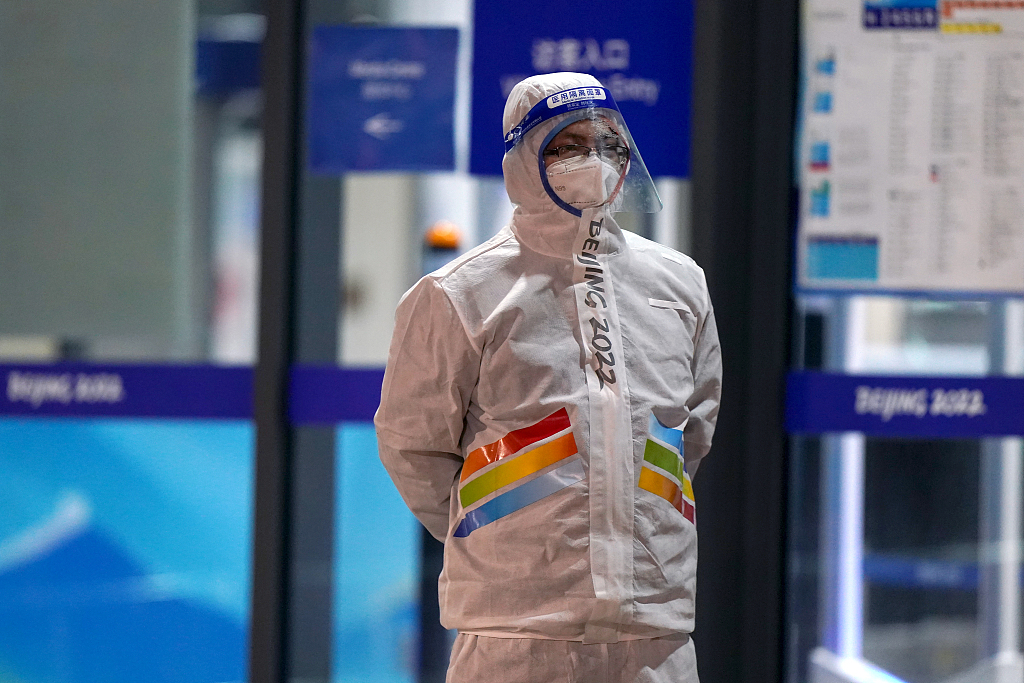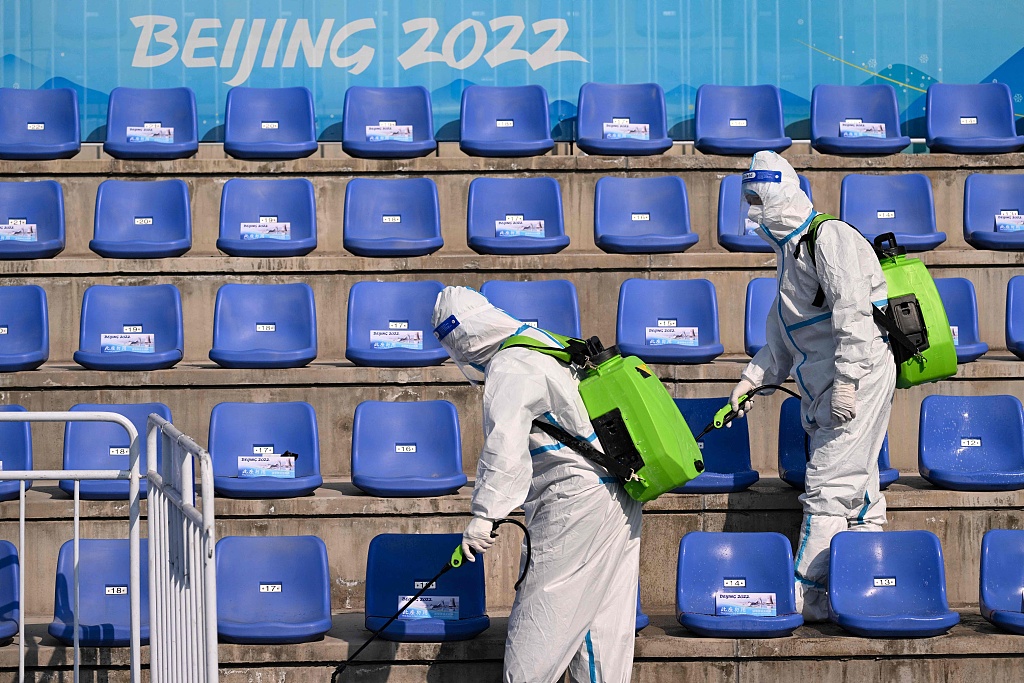
A member of staff wearing personal protective equipment at the media center of the 2022 Winter Olympic Games. /CFP
A member of staff wearing personal protective equipment at the media center of the 2022 Winter Olympic Games. /CFP
As of Wednesday, with only four days to go before the closing ceremony, no case of COVID-19 was reported in the "closed loop" of the Beijing 2022 Winter Olympic Games.
Kate Tulenko, who has served on expert panels for the World Health Organization (WHO), spoke highly of how the COVID-19 protocols were being followed for the Olympics. She gave three perspectives to assess it.
"One is to look at the cost. The other is to look at the success of reducing COVID transmission. And then the third is to look at the effect it has on the Olympic experience," Tulenko said. "I think from all of those three perspectives, these Olympics have been going well so far."
Tulenko said though fewer people attend Winter Olympics than Summer Olympics, the cold temperature in winter makes it easier for the coronavirus to spread. Moreover, the Omicron variant is widely believed to be much more infectious than other variants. As a result, Beijing 2022 have been facing a true challenge of protecting everyone from COVID-19.

Members of staff wearing personal protective equipment disinfect the stands after the end of the freestyle skiing men's big air final at the 2022 Winter Olympic Games at Big Air Shougang in Beijing, China, February 9, 2022. /CFP
Members of staff wearing personal protective equipment disinfect the stands after the end of the freestyle skiing men's big air final at the 2022 Winter Olympic Games at Big Air Shougang in Beijing, China, February 9, 2022. /CFP
Huang Chun, deputy director general of the Pandemic Prevention and Control Office of the Beijing 2022 Organizing Committee, owed the excellent performance against COVID-19 during the 2022 Winter Games to three reasons.
"First, we worked with the International Olympic Committee (IOC) and the International Paralympic Committee to make scientific and pragmatic playbooks. Second, our scientists and medical experts, both domestic and international, are paying close attention to the everyday development of the global pandemic and analyzing every case before studying and judging on the situation inside the closed loop and altering the protocols. Third, everyone that attends the Winter Olympics has been strictly following the protocols for self-protection and daily polymerase chain reaction tests," Huang said.
"I think we sometimes forget we are actually in the middle of a global pandemic. And we are hosting probably one of the most complex international competitions or events in the world very successfully," IOC spokesperson Mark Adams said. "So we are not complacent. The Games are not over yet. We're now making sure that everyone can leave safely. That's also a huge logistical challenge. But I would take my hat off to our Chinese friends and colleagues first. Really great work."

